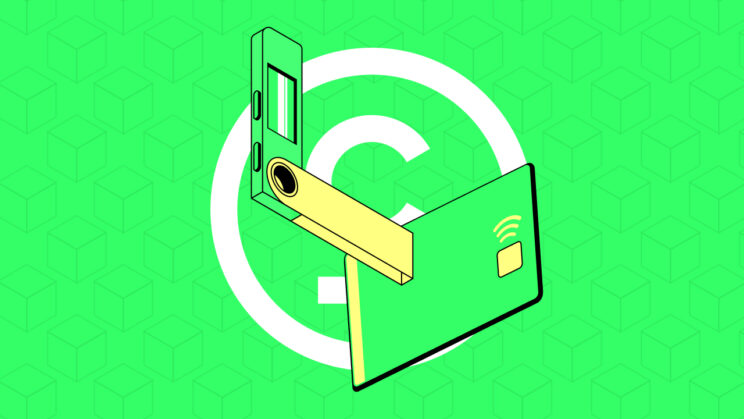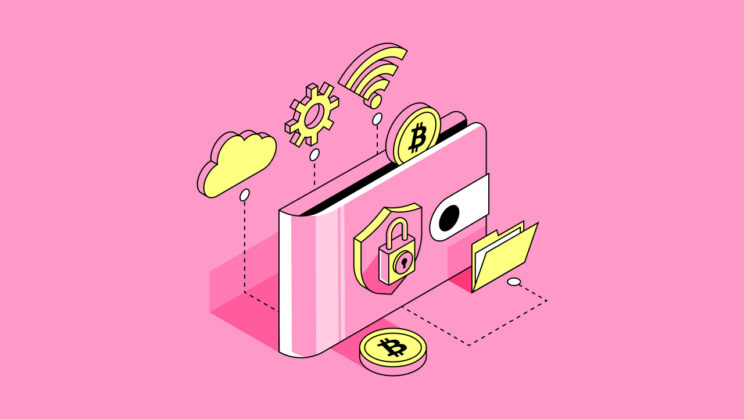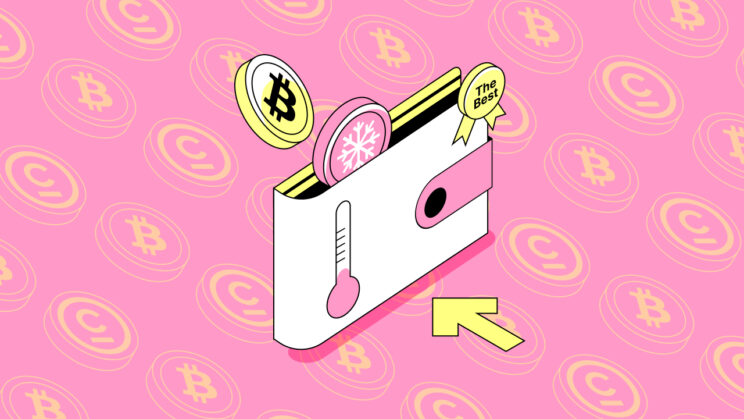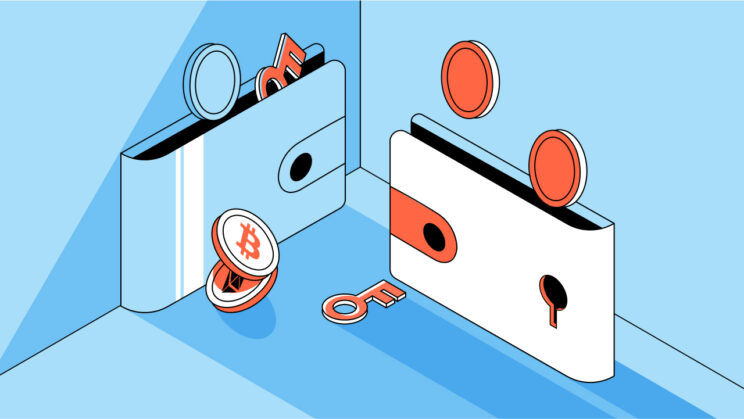15 best software wallets in 2023
Explore the ultimate selection of digital asset storage solutions in our in-depth analysis of top software crypto wallets. Uncover their innovative features, robust security measures, and seamless user experiences to choose the right fit for your crypto journey. Stay ahead with cutting-edge technology!
You can watch this short video featuring the top 5 wallets overview, or read the full article:
As a purely digital asset, cryptocurrency enables both storage and transfer of value in the digital realm. Despite its virtual nature, it shares a crucial similarity with conventional fiat currency: the need to securely store it in a wallet.
Within the world of cryptocurrency, “wallet” denotes any software, whether online or offline, that grants access to a user’s crypto holdings. Generally, wallets are available in three main types: online (exchange-hosted) wallets, software wallets (“hot” wallets), and hardware wallets (specialized devices resembling USB drives that provide top-notch security).
Crypto wallets can be somewhat complex. For instance, if you engage in cryptocurrency trading on a crypto exchange, you’ll possess a wallet directly linked to the exchange for the specific cryptocurrency you trade. However, this type of wallet is quite distinct from a standalone, dedicated crypto wallet software.
If you’re uncertain about where to begin with cryptocurrency wallets, fear not. This article will guide you through everything you need to know about the top 15 crypto wallet software options available in 2023.
What is Software Crypto wallet?

A crypto wallet is your unique “address” on the blockchain network associated with a specific cryptocurrency. It enables you to send and receive cryptocurrencies and serves as the gateway to access your digital assets.
A software wallet is an application installed on a smartphone or PC that stores private keys on behalf of the user. While the initial setup may require a few extra steps, once configured, software wallets are as easy to use as exchange wallets, with the added benefit of enhanced security and control.
Software Wallet vs Exchange-hosted Wallet vs Hardware wallets
Understanding the differences between software wallets, hardware wallets and exchange-hosted wallets is essential for anyone looking to securely store and manage their cryptocurrencies. Here is a comparison of the three wallet types:
Software Wallets
- Control: Software wallets provide users with full control over their cryptocurrency, as they store private keys locally on the user’s device (smartphone or PC).
- Security: These wallets offer an added layer of security compared to exchange-hosted wallets, as users are responsible for their own private keys.
- Versatility: Software wallets often support multiple cryptocurrencies, allowing users to manage different digital assets within a single application.
- Ease of Use: Although software wallets may require additional setup steps, they are generally user-friendly once configured.
Exchange-hosted Wallets (Online Wallets)
Exchange or online wallets are typically accessed through cryptocurrency exchange accounts. Online wallets are easy to access and use, but don’t provide full control over user funds and are at risk of hacking.
- Control: Users have limited control over their cryptocurrency in exchange-hosted wallets, as the private keys are managed by the exchange platform.
- Security: Online wallets are more susceptible to hacking, as they are hosted on centralized servers, which can be targeted by cybercriminals.
- Versatility: Exchange wallets typically support only the cryptocurrencies available for trading on the specific exchange platform.
- Ease of Use: Exchange-hosted wallets are easy to access and use, making them an attractive option for beginners in the world of cryptocurrency.
| Software Wallet | Exchange-hosted Wallet | |
| Pros | Provides an additional layer of security and control compared to exchange wallets, allowing users to manage multiple cryptocurrencies within a single application | Easy to access and use, making it an attractive option for beginners in the world of cryptocurrency |
| Cons | May be more challenging to set up initially, and requires regular updates to maintain security | Lacks full control over user funds and is susceptible to hacking, posing a significant security risk |
Hardware Wallets
Hardware wallets are dedicated hardware devices, similar to USB drives, that offer the highest level of security. Users connect a hardware wallet to a PC in order to access their cryptocurrency — when the wallet is not connected to a PC, it’s completely inert and virtually unhackable.
- Control: Hardware wallets also provide full control over the user’s cryptocurrency, as they store private keys on a dedicated hardware device.
- Security: These wallets offer the highest level of security, as the wallet remains inert and virtually unhackable when not connected to a PC. Cryptocurrencies stored in hardware wallets are safe from malware attacks and device theft.
- Versatility: Hardware wallets typically support multiple cryptocurrencies, similar to software wallets.
- Ease of Use: Hardware wallets may require a slight learning curve to set up and use, and users need to invest in a dedicated device to store their cryptocurrencies securely.
| Software Wallet | Hardware Wallet | |
| Pros | Offers a balance between ease of use and security, enabling users to manage their digital assets from their smartphone or PC | Provides the highest level of security, as the wallet remains inert and virtually unhackable when not connected to a PC |
| Cons | Potentially vulnerable to malware attacks or device theft, which may compromise the security of stored cryptocurrencies | Requires an investment in a dedicated device, and may not be as user-friendly as software wallets |

Top-15 software wallets
| Wallet | Type | For begginers? | |
| 1 | Exodus | Software & Hardware | Yes |
| 2 | Electrum | Software | No |
| 3 | Cropty | Software (custodial) | Yes |
| 4 | Coinomi | Software | No |
| 5 | Guarda | Exchange-hosted | Yes |
| 6 | Coinbase | Exchange & Software | Yes |
| 7 | Metamask | Software | No |
| 8 | TrustWallet | Software | No |
| 9 | BlueWallet | Software | Yes |
| 10 | Crypto.com | Exchange-hosted | No |
| 11 | Atomic | Software | Yes |
| 12 | ZenGo | Software | No |
| 13 | ByBit Wallet | Exchange & Software | Yes |
| 14 | MyEtherWallet | Software | No |
| 15 | Jaxx Liberty | Software | No |
1. Exodus Wallet: An Ideal Desktop Wallet with a Wide Range of Features

Alright, let’s talk about Exodus, one of the slickest desktop crypto wallets out there. We picked it as the best desktop wallet because it’s super-fast, easy to use, and offers tons of features. Let’s break it down and see what’s good and what’s not.
Pros
- Plenty of Assets: It supports more than 260 cryptos, which is more than many other wallets. That’s a lot of coins, including big names and even meme coins like Dogecoin and Shiba Inu!
- Hardware Wallet Compatibility: It plays nice with Trezor One and Trezor T, which are popular hardware wallets.
- Buy Bitcoin with Apple Pay: How cool is that? You can buy Bitcoin straight from the wallet using Apple Pay.
- Customer Support: These guys have your back 24/7 if you need help with anything.
Cons
- High Fees: The in-wallet crypto exchange can be pricey when it comes to transaction fees.
- No 2-Factor Authentication: Some of you might be bummed that there’s no built-in 2FA for extra security.
- No Multi-Signature Support: If you’re looking for advanced security with multi-sig, Exodus doesn’t have it.
So, why do people love Exodus? Well, it’s super easy on the eyes and works like a charm. Initially designed for desktop, it now has iOS and Android apps too. The desktop version is still the main show and gets updated every two weeks. It’s available for Windows, Linux, and Mac.
One thing that sets Exodus apart is the number of currencies it supports. It even includes NFTs! The wallet keeps adding more apps to make it even more functional, like live charts, crypto staking, and deposits.
A couple of other things worth mentioning:
- You can customize fees for Bitcoin, Ethereum, and ERC20 transactions.
- It’s a light client, which means it doesn’t download entire blockchains, making transactions faster.
Exodus is great for newbies since it’s super easy to use, with a built-in exchange and a simple interface. It supports a wide range of cryptocurrencies and lets you manage your own private keys. However, it’s closed-source, so you have to trust the devs that everything is secure.
Overall, Exodus is a solid wallet with mobile and desktop apps and even a browser extension. You can buy, trade, or stake crypto directly from the wallet, and it works with Trezor for easy transfers between hot and cold storage. It’s free to use and comes with helpful content for crypto newbies. It supports over 250 cryptocurrencies, but that’s still less than some competitors.
In a nutshell, Exodus is a fantastic option for those looking for an easy-to-use desktop wallet with a bunch of cool features. Just keep in mind the cons, like high fees and the lack of 2FA, before diving in.
2. Electrum Wallet: Oldie but Goodie, Perfect for Bitcoin Fans

So, you’re into Bitcoin and want a wallet that’s just for BTC? Say hello to Electrum, our pick for the best desktop Bitcoin wallet. It’s been around since 2011, and it’s got some pretty sweet features. Let’s dive in and see what’s hot and what’s not.
Pros
- Quick and Easy Setup: No one wants to spend hours setting up a wallet, and with Electrum, you don’t have to.
- Top-notch Security: It’s more secure than other hot wallets, which is always a plus.
- Customizable Fees: Want faster transactions? Pay more fees. Don’t mind waiting? Pay less. It’s up to you!
- No Downtime: Thanks to its server setup, Electrum wallets don’t suffer from downtime.
Cons
- Not for Newbies: The setup and interface might be a bit too complex for beginners.
- No Direct Customer Support: Don’t expect chat, email, or phone support if you run into issues.
Why did we pick Electrum as the best Bitcoin wallet? It’s got fantastic security features, and you can customize it to your heart’s content. Plus, it’s all about Bitcoin – which is a big deal for some people.
Electrum has been around for ages and is one of the few wallets that only deals with Bitcoin. It’s got a bunch of cool security stuff like 2FA, transaction proof checking, and multi-sig support. You can also adjust your fees to get transactions done faster or slower.
One of the best things about Electrum is that it’s a lightweight client. That means it’s super-fast to set up and won’t hog your computer’s space. It uses simple payment verification (SPV) to speed up transactions without sacrificing security.
A few more highlights:
- It’s open-source, so anyone can check out the code to make sure it’s legit.
- It supports both standard deterministic accounts and Hierarchical Deterministic (HD) accounts.
- You can integrate it with hardware wallets like KeepKey, Ledger, and Trezor for cold storage.
Electrum isn’t the easiest wallet to use, but it’s a fantastic choice for Bitcoin enthusiasts. It’s one of the oldest wallets around and has a super-strong security reputation. If you’re all about Bitcoin and want a wallet that lets you customize your security, Electrum is definitely worth a look. Just be prepared for a bit of a learning curve if you’re new to crypto.
3. Cropty Wallet: New Kid on the Block with Some Cool Features

Let’s talk about the Cropty wallet. This new player on the scene is making waves with some pretty cool features. Here’s a quick rundown of the pros and cons, with an informal twist.
Pros
- Easy Login: Cropty’s got you covered with two-factor authentication via email, SMS, phone number, or Telegram. Say goodbye to login hassles!
- End-to-end Encryption: Your data is super safe with Cropty’s end-to-end encryption, meaning only you can access your info.
- Security Alerts: Get notified via email, phone, or Telegram if something sketchy is going on with your wallet. Stay ahead of any potential threats.
- Private Key Protection: Cropty’s design keeps your private keys and crypto assets safe and sound from loss or theft.
- Access Monitoring: Withdrawals and transfers get paused for 24 hours if anything weird is detected, helping you protect your funds.
Cons
- Custodial Wallet: It’s not a non-custodial wallet, so you’re relying on Cropty to manage your private keys. This might not be ideal for everyone.
Cropty is a fresh new crypto wallet that makes it easy to store, send, and receive your crypto. It works with both EVM and non-EVM chains, and it’s got a wallet app for iOS, Android, and browsers. It’s a custodial wallet, which means you don’t have to worry about managing private keys (but some folks might prefer a non-custodial option).
Want to earn, loan, or transfer crypto? Cropty’s got you covered. Plus, it doesn’t need identity verification, so you can stay anonymous. They’re all about privacy, and they won’t sell your personal information. And you don’t have to worry about private keys—Cropty’s end-to-end encryption keeps them safe.
So, if you’re looking for a new crypto wallet with some cool features and a focus on security, Cropty might just be the one for you. Give it a try and see if it’s the right fit for your crypto needs!
4. Coinomi: The Ultimate Smartphone Buddy for Crypto Lovers

Coinomi, the smartphone-friendly wallet that’s got a thing for variety. Supporting over 200 cryptocurrencies, this mobile wallet is perfect if you’re into carrying multiple digital currencies on-the-go. But before you dive in, let’s have a quick look at the pros and cons, in a more casual tone.
Pros
- Time-tested: Coinomi’s been around the block as the oldest multi-chain wallet out there, and it’s never been hacked.
- Feature-rich: With a built-in exchange and tons of supported assets, it’s like having a crypto buffet in your pocket.
Cons
- No 2FA: If two-factor authentication is your jam, you won’t find it here.
- Closed-source: The wallet code’s not open for everyone to see, which might leave some folks craving transparency.
Coinomi was born to be a multi-chain wallet, juggling multiple blockchain addresses so you can send and receive transactions on all of them. It’s packed with strong security features, over 1,700 tradable assets, and 168 fiat currency representations – readable in 25 languages. Not too shabby, right?
Now, it didn’t exactly top our list in any specific category, but if you’re on the hunt for a solid multi-chain wallet, Coinomi’s got your back. Just keep in mind that older versions had some security hiccups, though recent updates seem to have patched things up. It’s a decent mobile wallet for iOS and Android, but if you’re dealing with big bucks, you might want to pair it with a hardware wallet for that extra security layer.
So, if you’re looking for a trusty sidekick to manage multiple cryptocurrencies on your smartphone, Coinomi might be the one for you. Give it a shot and see how it fits your crypto lifestyle!
5. Guarda: The Ultimate Crypto BFF for Newbies and Pros Alike

Meet Guarda, a non-custodial multi-platform wallet that’s all about keeping your digital assets safe and sound. With a user-friendly vibe, Guarda lets you store, manage, buy, exchange, sell, and even stake a huge variety of cryptocurrencies. Now, let’s break it down with some pros and cons, in a chill, informal style.
Pros
- Super secure: Sleep tight knowing your assets are well-protected.
- Crazy variety: Over 400k digital assets to play with? Yes, please!
- All-in-one: Borrow, earn, and swap crypto, all in one place.
- Top-notch support: Responsive customer service, ready to help you 24/7.
- Facial recognition: Face ID authentication adds an extra layer of security for mobile users.
- Multi-signature wallets: Keep your funds extra safe with multiple signatures.
Cons
- In-app fees: Be prepared to pay higher fees for in-app crypto purchases.
Born in 2017, Guarda Wallet has made a name for itself in the crypto world. With a web interface, Chrome extension, desktop app, and mobile apps for Android and iOS, Guarda Wallet’s got you covered no matter how you want to manage your digital currencies.
Supporting 50+ blockchain networks, Guarda lets you handle over 400,000 digital currencies and tokens securely. Sure, the in-app purchase fees might be a bit steep, but with top-notch security and a user-friendly experience, it’s a small price to pay in the wild world of crypto.
And to sweeten the deal, Guarda Wallet offers regulated in-app crypto exchange, staking rewards, and prepaid card services – all thanks to their Estonian license for virtual currency services.
So, whether you’re a crypto newbie or a seasoned pro, Guarda Wallet has got everything you need to dive into the digital currency game. Give it a try and see if it’s the perfect match for your crypto journey!
6. Coinbase Wallet: Your Ultimate Crypto Wingman

Get ready to dive into the world of crypto with Coinbase Wallet, your trusty sidekick for all things digital currency and NFTs. Let’s break it down with some pros and cons, served up in a more casual tone.
Pros
- All-in-one storage: Keep your crypto and NFTs organized and accessible in one handy spot.
- Token paradise: Hundreds of thousands of tokens and dapps at your fingertips.
- Decentralized web explorer: Roam the decentralized web with confidence, whether on your phone or browser.
- Top-notch security: Sleep easy knowing your digital assets are protected by industry-leading security measures.
- Coinbase compatibility: Already a Coinbase user? No worries! Link your account to your Wallet for seamless access to your crypto.
Cons
Honestly, we’re struggling to find any major cons here. Looks like Coinbase Wallet is pretty solid!
Coinbase Wallet puts you in control of your crypto game, offering a self-custody wallet that keeps your crypto, keys, and data safe and secure. Whether it’s Ethereum or Polygon NFTs, you can store and view them easily in your Wallet.
And if you’re all about DeFi, Coinbase Wallet is your go-to for earning yield, growing your NFT collection, and much more. Use DeFi liquidity pools to supply or borrow crypto, swap assets on decentralized exchanges, or join a DAO and help shape a major web3 project.
Best of all, Coinbase Wallet makes it super simple to get from cash to NFT. With support for buying crypto using credit or debit cards in over 90 countries, you can fund your Coinbase Wallet and start your NFT collection in just a few taps or clicks.
So, if you’re looking for a reliable and user-friendly wallet to manage your digital assets, look no further than Coinbase Wallet. Happy crypto adventures!
7. Metamask: Your Trusty Sidekick for Ethereum Adventures

Ready to explore the world of blockchain apps? Metamask is here to help you do just that, with over 30 million users already on board. Let’s dive into the pros and cons in a more chill tone.
Pros
- Buy, store, send, and swap: Metamask has you covered with a key vault, secure login, token wallet, and token exchange – all in one place.
- Ease of use: Available as a browser extension and a mobile app, Metamask is super easy to access and use.
- Discover blockchain apps: Easily connect to blockchain-based applications and navigate the decentralized web with confidence.
- You’re in control: Metamask generates passwords and keys on your device, so only you have access to your accounts and data. Share what you want and keep the rest private.
Cons
- High fees for Ether purchases: Buying Ether through Metamask can come with higher fees compared to other methods or platforms.
- Limited storage capabilities: Metamask does not support the direct storage of Bitcoin or other non-ERC20 tokens.
- Less secure than hardware wallets: While Metamask is convenient for everyday use and interacting with dApps, it is not as secure as a hardware wallet for long-term storage of significant cryptocurrency holdings.
- Reliance on browser compatibility: Although Metamask is compatible with popular browsers like Google Chrome, Microsoft Edge, Mozilla Firefox, and Brave, it may not work with other less-common browsers or if browser compatibility is affected by updates.
- User responsibility for security: Since account information is encrypted and stored locally, users have full control of their private keys. While this provides control, it also means users are responsible for ensuring their devices and accounts remain secure.
Metamask is a leading self-custodial wallet that offers a safe and straightforward way to access blockchain applications and web3. Trusted by millions worldwide, it’s perfect for users who want a secure and user-friendly experience.
And if you’re a developer, you can be part of Metamask’s global community by contributing to its growth. Check out open issues, bounties, documentation, and contributing guidelines to get started.
Plus, if you’re into swag, Metamask’s got you covered with their online shop. Rock some cool merch while you explore the blockchain universe!
So go ahead, download Metamask today, and embark on your epic blockchain journey!
8. Trust Wallet: Your Go-To Crypto Buddy for Mobile

Trust Wallet is the perfect companion for anyone looking to manage their crypto on-the-go. With over 25 million users, this app has got your back when it comes to buying, storing, trading, and even earning crypto.
Pros
- Tons of coins and tokens: Trust Wallet supports a massive range of cryptocurrencies, so you’ll never feel left out.
- Earn interest on your crypto: Sit back and watch your money grow by earning interest on 12 different cryptos.
- User-friendly interface: The app’s design is simple and easy to navigate, so you can focus on what matters—your crypto.
- Built-in Web3 browser: Access your favorite decentralized apps and explore new ones without ever leaving the wallet.
Cons
- Owned by Binance: Since Trust Wallet is owned by Binance, which has faced some regulatory issues in the U.S., it might give some users pause.
- Limited educational resources: If you’re new to the crypto world, Trust Wallet doesn’t provide much in terms of learning materials for coins and tokens.
Why Trust Wallet Rocks: Trust Wallet is our top pick for the best mobile crypto wallet because of its sleek interface, extensive support for assets, and built-in features for dApps and NFTs.
As the official mobile app for Binance, Trust Wallet is a non-custodial wallet that supports over 65 blockchains and 4.5 million coins and tokens. It’s perfect for NFT and dApp enthusiasts, thanks to its built-in Web3 browser that lets you explore and interact with dApps and games directly.
Plus, Trust Wallet’s integration with Binance DEX makes buying tokens super easy, and it’s highly rated on both Apple and Google marketplaces. So go ahead, give Trust Wallet a try and see how it can make your crypto journey smoother and more enjoyable.
9. BlueWallet: Your Sleek and Speedy Bitcoin Buddy

BlueWallet is a fantastic choice for anyone who wants a no-nonsense, powerful, and Bitcoin-focused mobile wallet. Born in the aftermath of the 2017 fork wars, this app is perfect for Bitcoin traders looking for a simple and feature-rich alternative.
Pros
- Clean design and user-friendly interface: Easy to navigate, even for beginners.
- On-chain and lightning transactions: Enjoy the best of both worlds with BlueWallet’s support for both types of transactions.
- Multiple wallets in one app: Create or import multiple wallets with ease.
- Multi-signature vaults: Extra security is always welcome, and BlueWallet’s multi-signature vaults deliver just that.
Cons
- No two-factor authentication: BlueWallet is missing this essential security feature.
- Lacking in-app tutorials for advanced tools: Some advanced features might be difficult to navigate for newcomers.
Why BlueWallet is a Top Choice: BlueWallet stands out as the best Bitcoin wallet for mobile because of its feature-packed app, straightforward user interface, and integration with the Lightning Network.
Like Electrum, BlueWallet is all about Bitcoin, which means it can focus solely on improving and innovating the Bitcoin experience. The app’s interface is welcoming for beginners, while also offering advanced features like batch transactions, customizable fees, and Tor connections for enhanced privacy.
BlueWallet’s integration with the Lightning Network is a game-changer. This layer two solution makes peer-to-peer payments lightning-fast (pun intended) compared to the traditional Bitcoin blockchain.
Other Cool Stuff:
- Watch-only wallets: Keep an eye on your cold storage without exposing your private key.
- Plausible deniability: Set up a decoy wallet with a different password, just in case you’re forced to disclose your info.
So, if you’re a Bitcoin enthusiast seeking an efficient and user-friendly wallet, give BlueWallet a try and enjoy its simplicity and power.
10. Crypto.com DeFi Wallet: Your Gateway to Decentralized Finance

Looking for a wallet that’s not just about storage, but also opens the door to the exciting world of decentralized finance? Crypto.com DeFi Wallet might be the perfect match for you!
Pros
- Choose your own adventure: Pick your preferred trading fee and confirmation speed.
- Variety of coins: Over 250 coins supported, including BTC, ETH, CRO, ATOM, DOT, and LTC.
- Earn interest: Make your crypto work for you by earning interest on more than 21 cryptocurrencies.
Cons
- Losing keys means losing access: If you lose your private key and recovery phrase, your funds are gone for good.
- Geo-restrictions apply: The built-in token swap feature might not be available in certain regions.
Why Crypto.com DeFi Wallet Stands Out: This DeFi wallet is our top choice because of its range of decentralized finance tools, smooth onboarding process, and solid security features.
Crypto.com DeFi Wallet is perfect for those taking their first steps into decentralized finance. With a DeFi wallet, you have full control over your digital assets and private key – just make sure to keep them safe! It also offers unique features like one-to-one crypto swaps and a bunch of tools to earn passive income on your crypto holdings.
It’s essential to understand the difference between Crypto.com’s custodial and non-custodial wallets. You can download the DeFi Wallet and use it daily without creating an account on the exchange platform.
Keep in mind that decentralized finance products come with significant risks, so always approach with caution.
Other Cool Features:
- Top-notch security: Biometric authentication, 2-factor authentication, and Secure Enclave tech on iOS devices.
- Multiple wallets: Create multiple digital wallets and import other wallets as needed.
- Connect with decentralized apps: Use WalletConnect to link up with other decentralized apps.
So, if you’re ready to dive into the world of decentralized finance with a user-friendly and feature-packed wallet, give Crypto.com DeFi Wallet a go!
11. Atomic Wallet: Manage, Buy, and Stake Your Crypto in One Place

Looking for a wallet that lets you handle all your crypto needs without all the fuss? Check out Atomic Wallet – it’s got everything you need!
Pros
- Tons of coins: Supports over 300 coins and tokens – talk about variety!
- Easy peasy purchases: Buy and exchange crypto with your credit card, right in the wallet.
Cons
- No hardware wallet love: Can’t connect to cold storage, which is a bummer.
- Atomic swaps limited: Not many coins available for the atomic swap feature.
Why Atomic Wallet is Worth Checking Out: Atomic Wallet is a hot storage wallet with some cool features. You don’t need to open an account to use it, and their customer support is there for you 24/7. Plus, it supports a ton of assets! The Atomic Swap feature is pretty neat too – it’s a decentralized crypto exchange right in your wallet, letting you swap currencies without third parties.
Why Atomic Wallet Didn’t Make Our Top List: Even though it’s got some great perks, Atomic Wallet didn’t quite make the cut. Other wallets out there have some extra bells and whistles that give them the edge.
So, if you’re on the hunt for a wallet that lets you manage, buy, and stake your favorite crypto assets with ease, give Atomic Wallet a try! Just remember, it’s not perfect, and there might be other options that suit your needs even better.
12. ZenGo Wallet: The Futuristic Secure Crypto Wallet for Everyone

Looking for a wallet that’s super secure and easy to use? ZenGo Wallet might just be what you need! Let’s dive into its pros and cons.
Pros
- No more private keys: Keyless security system means no single point of failure – pretty cool, huh?
- Buy crypto your way: Use your credit card, debit card, bank transfer, or even Apple Pay.
Cons
- No private keys controversy: Some peeps don’t like the idea of not having private keys – it’s a hot debate!
- Not worldwide: Bummer, but not all features are available everywhere.
Why ZenGo Wallet Stands Out: ZenGo is all about security. With biometric encryption, three-factor authentication (3FA), and multi-party computation (MPC) cryptography, it’s a non-custodial wallet without private keys. Plus, it supports dApps, NFTs, and crypto staking!
Why ZenGo Wallet Didn’t Make Our Top List: Despite all the cool stuff it offers, ZenGo Wallet’s unique approach to security made it miss out on a spot in our top list. But hey, if you’re cool with trying something different, ZenGo Wallet could be the one for you! Just keep in mind that it might not be everyone’s cup of tea.
13. ByBit WEB3 Wallet: The Crypto Ark for Web3 Enthusiasts

If you’re all about that Web3 life, then ByBit WEB3 Wallet might be your new best friend! Let’s break down the pros and cons real quick.
Pros
- Secure your digital assets: Focus on the fun of Web3 while ByBit takes care of your private keys.
- Get into DApps: Easily access popular DApps and the whole Web3 ecosystem.
Cons
- Not much info on supported assets: We don’t have a clear picture of which cryptos you can store in the wallet.
- No mention of hardware wallet support: There’s no info about connecting to a hardware wallet for extra security.
Why ByBit WEB3 Wallet Stands Out: ByBit Wallet is your gateway to Web3.0, letting you explore decentralized applications (DApps) and the tokenized economy without stressing about managing, storing, and securing your private keys. Plus, it gives you access to cool events and articles about the world of Web3.
Why ByBit WEB3 Wallet Didn’t Make Our Top List: While ByBit WEB3 Wallet looks promising, we’re missing some essential info like which assets it supports and whether you can connect to a hardware wallet. But if you’re cool with trying something new and focusing on the Web3 experience, ByBit Wallet could be worth a shot!
14. MyEtherWallet (MEW): The O.G. Ethereum Wallet, Now Upgraded

If you’re into Ethereum, you’ve probably heard of MEW, aka MyEtherWallet. It’s been around since the early days of Ethereum, but now it’s packed with new features. Let’s dive into the pros and cons!
Pros
- User-friendly interface: Interacting with the Ethereum blockchain has never been easier.
- Multichain wallet extension: Access your favorite apps across Ethereum and Polkadot chains, and manage your NFTs.
- Swaps, DeFi, DApps, NFTs, Stablecoins: Partnered with Bity, Kyber Network, Changelly, and Simplex for all your crypto needs.
- Hardware wallet support: MEW works with Ledger, Trezor, and more for extra security.
- MEW wallet app: Enjoy hardware wallet-style security on your iOS or Android smartphone.
Cons
- Focused on Ethereum and ERC20 tokens: Not as versatile if you’re into a diverse range of cryptocurrencies.
- Not the best choice for complete beginners: Although user-friendly, it might be a bit overwhelming for total newbies.
Why MEW Rocks: MyEtherWallet has been around since the beginning, but it’s constantly upgrading its features. With its multichain wallet extension, crypto swaps, DeFi, DApps, NFTs, and stablecoins, you’ll have everything you need in one sleek interface.
Why MEW Didn’t Top Our List: While MEW is a fantastic choice for Ethereum enthusiasts, it might not be the best fit for those into a wider variety of cryptos or absolute beginners. But if you’re all about that Ether life, MyEtherWallet is a solid choice!
15. Jaxx Liberty Wallet: Privacy, Security, and Simplicity for Crypto Fans

The Jaxx Liberty wallet, which is all about privacy and security. But, if you’re a fan of extra features like NFT management, you might want to look elsewhere. Let’s break down the pros and cons:
Pros
- Simple interface: Manage multiple cryptocurrencies with ease.
- Hierarchical deterministic platform: Get better protection for your user identity with new wallet addresses after each transaction.
- Secure customer service: In-app ticketing system and email keep you safe from scams.
- Partner integrations: Buy and exchange cryptocurrencies with Simplex and Changelly.
Cons
- Limited crypto support: With only 82 cryptocurrencies, it falls short compared to other wallets.
- No staking: You can’t stake cryptocurrency from the wallet to earn interest.
- No NFT support: Limited functionality for NFTs, dApps, and decentralized exchanges.
- Not for large amounts: Storing big quantities of crypto? Go for cold storage instead.
Why Jaxx Liberty Rocks: Jaxx Liberty is perfect for those who value simplicity, privacy, and security. It’s easy to use across multiple devices, and you can buy, store, and transfer over 80 cryptocurrencies.
Why Jaxx Liberty Didn’t Top Our List: While Jaxx Liberty is a solid wallet, it’s lacking in some features like staking, NFT support, and compatibility with a wide range of cryptocurrencies. So, if you’re after a wallet with more bells and whistles, you might want to consider other options. But, if privacy and simplicity are your priorities, give Jaxx Liberty a try!
Software wallets FAQ
What is software wallet?
A software wallet is a digital wallet used to store, manage, and secure cryptocurrencies like Bitcoin, Ethereum, and other digital assets. Software wallets are applications that can be installed on computers, smartphones, or tablets, and they store the private keys necessary to access and manage your cryptocurrency holdings locally on your device.
There are different types of software wallets, including desktop wallets, mobile wallets, and web wallets. Each type has its own set of features, usability, and security measures. Software wallets provide a convenient way to interact with the blockchain, send and receive digital currencies, and perform transactions. However, the security of a software wallet largely depends on the user’s security practices, such as keeping the device up-to-date, using strong passwords, and not sharing private keys or seed phrases with anyone.
Are software wallets safe?
oftware wallets are generally safe, but their level of security depends on various factors such as the wallet provider, user practices, and the device being used. While software wallets offer better security than exchange-hosted wallets, they are not as secure as hardware wallets.
Some factors that can influence the safety of software wallets include:
- Wallet provider reputation: Choose a software wallet from a reputable company with a solid track record in security and user satisfaction.
- Device security: Ensure your device is protected with the latest security updates, anti-malware software, and strong password protection.
- User practices: Be cautious with your private keys, backup phrases, and passwords. Never share them with anyone, and store them securely.
In summary, software wallets can be safe if you choose a reputable provider and follow best practices for securing your digital assets. However, for large amounts of cryptocurrency or long-term storage, a hardware wallet is recommended for maximum security.
Best software wallet for Bitcoin
If you’re on the hunt for the best software wallet for Bitcoin, you might want to consider Cropty. It’s a relatively new wallet that’s been gaining popularity thanks to its user-friendly interface, security features, and versatility. Here’s a casual look at Cropty’s pros and cons:
Pros
- Easy Login: Cropty offers two-factor authentication through email, SMS, phone number, or Telegram, making logins a breeze.
- End-to-end Encryption: Your data is super secure with Cropty’s end-to-end encryption, ensuring only you can access your information.
- Security Alerts: Receive notifications via email, phone, or Telegram if anything suspicious happens with your wallet, keeping you a step ahead of potential threats.
- Private Key Protection: Cropty’s design safeguards your private keys and crypto assets from loss or theft.
- Access Monitoring: Any unusual activity triggers a 24-hour pause on withdrawals and transfers, adding an extra layer of protection for your funds.
Cons
- Custodial Wallet: Since Cropty is a custodial wallet, it manages your private keys, which may not be ideal for everyone.
Cropty supports both EVM and non-EVM chains and offers a wallet app for iOS, Android, and browsers. It allows users to earn, loan, or transfer crypto without needing identity verification, ensuring privacy. Cropty’s end-to-end encryption also keeps your private keys safe.
So, if you’re searching for a secure, feature-rich software wallet for Bitcoin, Cropty could be the perfect choice. Give it a shot and see if it meets your crypto needs!
What is the most secure software wallet?
It’s difficult to pinpoint a single “most secure” software wallet, as the security of a wallet depends on a combination of factors, including its features, user practices, and updates. However, some of the top contenders for the most secure software wallets include:
- Electrum: A popular and well-established wallet for Bitcoin, Electrum has a strong reputation for security, offering features like multi-signature support, offline storage, and integration with hardware wallets.
- Cropty: A newer wallet with a focus on security, Cropty offers end-to-end encryption, security alerts, private key protection, and access monitoring. While it is a custodial wallet, it provides ease of use and anonymity, catering to users who prefer not to manage private keys themselves.
- Exodus: This user-friendly, multi-cryptocurrency wallet offers solid security features, including end-to-end encryption, automatic backup, and compatibility with hardware wallets like Trezor.
- Atomic Wallet: A multi-currency wallet that supports more than 300 cryptocurrencies, Atomic Wallet provides security through its decentralized, non-custodial design, private key encryption, and support for hardware wallets.
Ultimately, the most secure software wallet for you will depend on y
Software wallet vs Hardware wallet
Choosing between a software wallet and a hardware wallet depends on your needs, preferences, and the level of security you require. Here are some factors to consider when deciding between the two:
- Security: Hardware wallets provide the highest level of security for your cryptocurrencies since they store your private keys offline. If security is your top priority, a hardware wallet is the better choice. However, if you follow best practices and take necessary precautions, a software wallet can still offer a decent level of security.
- Accessibility: Software wallets offer easy access to your funds, as they can be used on smartphones or computers. If you need to access your cryptocurrencies frequently, a software wallet might be more convenient. Hardware wallets require connecting to a device to access your funds, which can be less convenient for frequent use.
- Budget: Hardware wallets can be relatively expensive, with prices ranging from $50 to $200, depending on the model. Software wallets are typically free or low-cost. If you’re on a tight budget, a software wallet may be the better option.
- User experience: Software wallets tend to have user-friendly interfaces and offer a more seamless experience for managing your cryptocurrencies. Hardware wallets may require a learning curve for setup and use. If ease of use is important to you, a software wallet might be the better choice.
- Crypto activities: Consider what you plan to do with your cryptocurrencies. If you plan to trade frequently or use cryptocurrencies for everyday transactions, a software wallet may be more convenient. If you’re a long-term investor or plan to hold a significant amount of cryptocurrency, a hardware wallet offers better security.
Ultimately, the choice between a software wallet and a hardware wallet depends on your individual needs and priorities. You may even want to use both – a hardware wallet for storing larger amounts of cryptocurrency securely and a software wallet for smaller, more frequent transactions.










